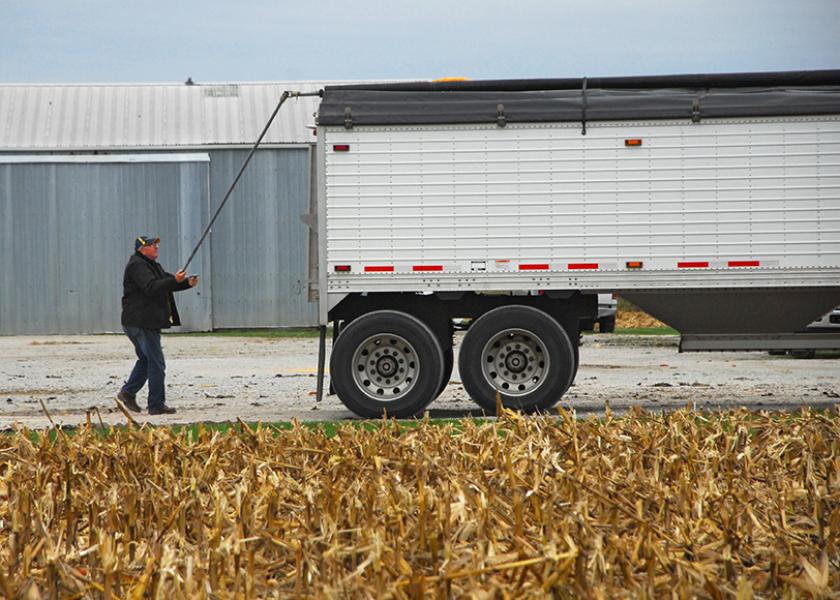Get Ready to Roll: Steps to Keep Tires “Round” During Harvest

When taking trucks and equipment out of storage prior to harvest, assume every tire needs air.
“It’s normal for tires on equipment in storage to lose around two psi per month,” says Greg Jones with Firestone Agricultural Tire. “Combines or tractors with Increased Flexion (IF) or Very High Flexion (VF) tires that run at low air pressure are especially sensitive to air loss. If you’re already running low pressure, being five or so pounds lower than what is required to carry the load can be a big deal.”
Gauge Don’t Bang
An accurate air pressure gauge is essential, whether a tire is specified to carry 24 psi or 110 psi. The trucker’s tradition of banging truck tires with a ball peen hammer or tire billy and judging air pressures by ear has been proven grossly inaccurate.
In a report by tire re-treader Bandag, it was wryly noted that “pinging” tires to check air pressures was as accurate as, “…checking the engine oil level by tapping the side of the oil pan with that same hammer.”
“Keeping truck and trailer tires at full recommended pressure makes a huge difference in the mileage you get out of them,” Jones says .
Flex of the tread surface, sidewalls and especially the internal cords of an improperly pressurized tire can create excess heat within a tire’s tread.
“If a tire’s internal temperature exceeds its curing temperature, the rubber starts to break down,” says Jeff Miller, with Trelleborg Wheel Systems. “You’d be surprised how hot the rubber inside (the tread of) an underinflated tire gets, going down a road at high speed or pulling a big load through a field.”
Under Pressure
Identifying the correct air pressure for tires on ag equipment can be tricky. Recommended air pressures in owner’s manuals for combines must be adapted to accommodate the extra weight of aftermarket grain tank extensions. Tire or equipment dealerships can use the estimated total loaded weight of combines or grain carts to determine the optimum tire pressure.
Changes in ambient temperature from the beginning to end of harvest can also influence tire air pressure. Anyone who has had their pickup’s automatic tire pressure monitoring system warning light come on after the first cold spell of winter knows how ambient pressure can affect tire pressure.
Assume a two to three psi decrease in tire pressure between September and November due simply to cooler weather.
Read More Harvest News
What's That Clanging in My Combine? Diagnosing Not-So-Funny Noises







